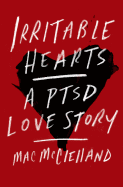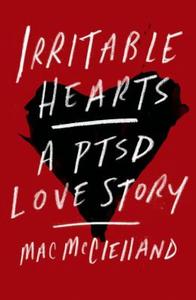

While covering the aftermath of the earthquake that devastated Haiti in 2010, McClelland witnessed a rape. Although her past was anything but uneventful--not only had she covered other major international stories but she and her ex-husband were among the hundreds of thousands displaced by Hurricane Katrina--her reaction to the stress of this particular incident was unusual. Instead of feeling terror or anger, McClelland had a sort of out-of-body experience, as though her consciousness had dispersed from her physical being. After that experience, McClelland also had to fight off constant and insistent sexual advances from a male coworker.
The one bright spot in her assignment was meeting Nico, a gorgeous French soldier dispatched as a peacekeeper in Haiti during the crisis. She expected a one-night stand, but their connection endured even when they returned to their respective countries. Unfortunately, a simple happily ever after didn't appear to be in the cards. Once back in the United States, McClelland found her symptoms--physical numbness, night terrors, uncontrollable crying--had followed her home. The diagnosis of PTSD shocked her; how could she suffer so much from a trauma if she wasn't even the victim? However, as she began to suffer hallucinations, crippling depression and suicidal thoughts, McClelland knew she had to take her condition seriously if she wanted her growing relationship with Nico to have a chance.
McClelland injects her memoir with plenty of eye-opening facts and statistics about PTSD, some widely known and some less so. For example, while PTSD is most commonly associated with war veterans, studies found that around a quarter of New Orleanians exhibited symptoms in the aftermath of Hurricane Katrina. Direct trauma also isn't a prerequisite for the condition; people who live in close proximity to someone with PTSD can develop symptoms. As McClelland learned firsthand, societal views of PTSD still reflect a victim-blaming mentality, and the rejection and ridicule she faced from colleagues and the public after releasing an essay about her condition is painful to read. Readers should rest assured that her romance with Nico balances out the more dire aspects of her story: "I wanted to feel myself in the world so I could feel the best thing the world had to offer, and that was Nico's love." This no-holds-barred account of wading through the agony and debilitation of severe trauma to find deep love on the other side will leave readers shaken but hopeful. --Jaclyn Fulwood, blogger at Infinite Reads
Shelf Talker: An American journalist recounts her struggle to heal from post-traumatic stress disorder while romancing a handsome French soldier.

